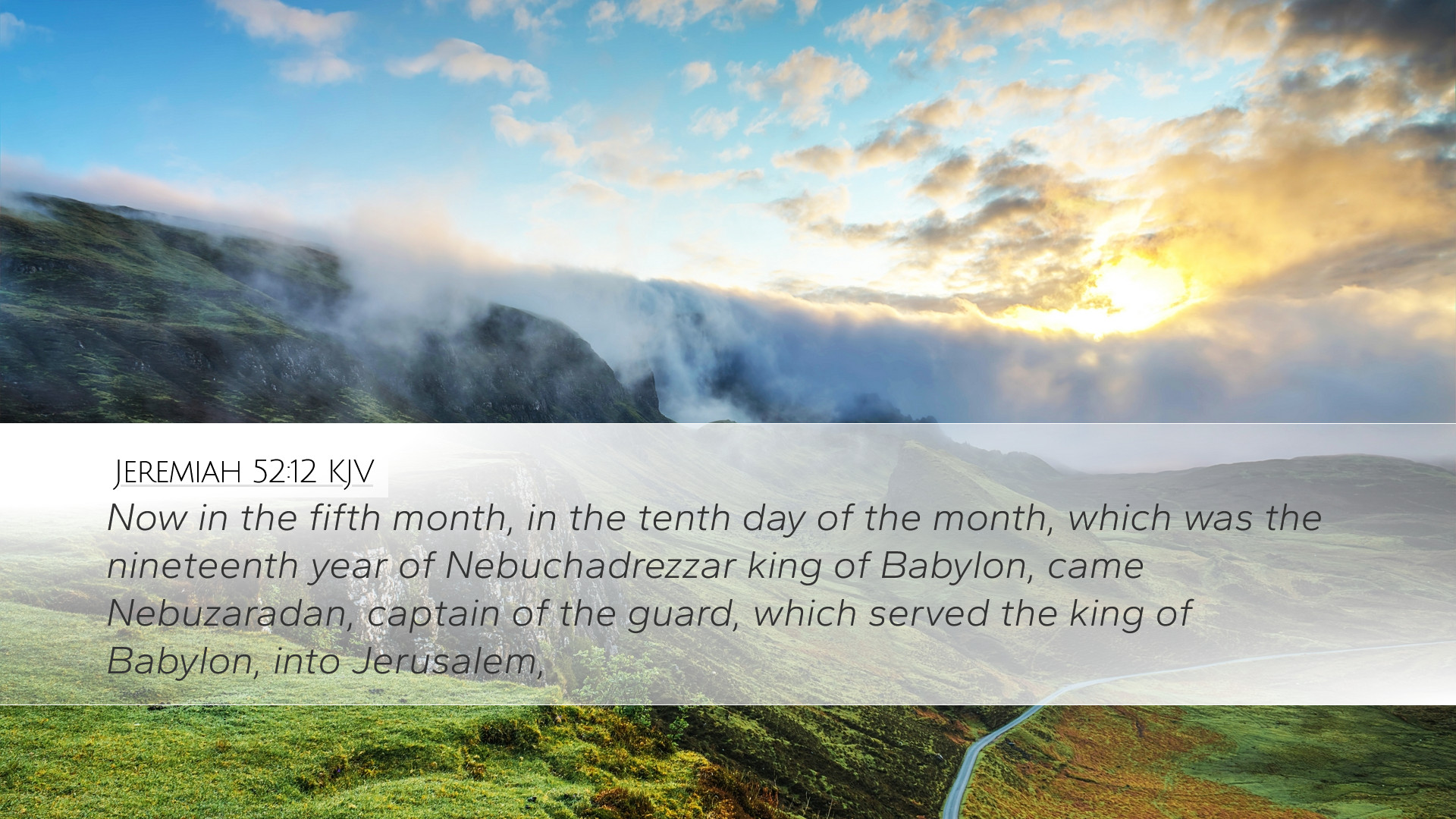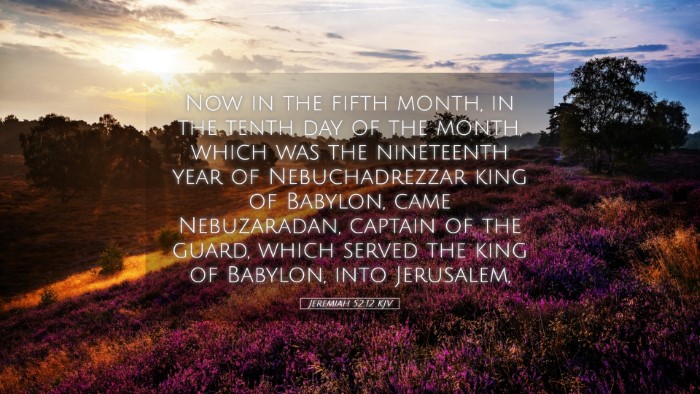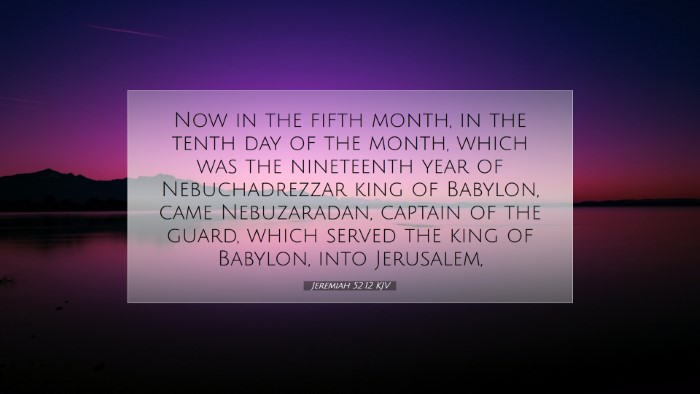Commentary on Jeremiah 52:12
Introduction
Jeremiah 52:12 states: "Now in the fifth month, on the tenth day of the month, which was the nineteenth year of King Nebuchadnezzar, king of Babylon, Nebuzaradan, the captain of the guard, a servant of the king of Babylon, came to Jerusalem;" This verse marks a significant moment in the historical narrative of the fall of Jerusalem, encapsulating themes of judgment, destruction, and the sovereignty of God over nations.
Historical Context
The context of Jeremiah 52 is critical for understanding the events surrounding the fall of Jerusalem in 586 B.C. As noted by Matthew Henry, this chapter serves as a historical account that summarizes the prophecy of Jeremiah and the reality of Babylon's conquest. The date specified in the verse signals the culmination of a series of catastrophic events for the nation of Judah, reflecting the prophecies concerning exile and destruction.
Analysis of Characters
The two primary figures in this verse are Nebuchadnezzar and Nebuzaradan. According to Albert Barnes, Nebuchadnezzar represents the power of Babylon, a seemingly invincible force wielding God's judgment against Judah due to their persistent rebellion and unfaithfulness. On the other hand, Nebuzaradan, the captain of the guard, symbolizes the execution of this judgment, acting as the agent of God's will.
Theological Implications
This verse serves as a reminder of God's sovereignty in history. Adam Clarke argues that while the barbarity of the Babylonians is evident, God's hand was ultimately guiding these events, as He had warned Judah repeatedly through His prophets. This highlights the principle that God can use even wicked nations to fulfill His divine purposes, a theme prevalent throughout Scripture.
Judgment and Grace
The fall of Jerusalem is portrayed in stark terms, indicating God’s judgment. However, within the judgment, there are also motifs of divine grace. As noted by Matthew Henry, the eventual restoration of Israel is foreshadowed, suggesting that God's disciplinary actions are not without the hope of redemption. This duality is essential for understanding God's character as both just and merciful.
Application for Believers
For contemporary believers, Jeremiah 52:12 encourages reflection on the consequences of turning away from God. The historical judgment faced by Judah serves as a warning about the dangers of idolatry and unfaithfulness. Albert Barnes emphasizes that understanding these narratives allows modern Christians to appreciate the depth of God's commitment to holiness and righteousness. Moreover, it underlines the importance of repentance and faithfulness in our walk with God.
Conclusion
In conclusion, Jeremiah 52:12 encapsulates a moment of profound significance in the biblical narrative. By incorporating insights from various commentators, we gain a richer understanding of the text's implications both historically and theologically. The events surrounding this verse prompt reflection on God's sovereignty, judgment, grace, and the call for faithfulness in the lives of believers today. As we consider this passage, let us remain attentive to God's voice and faithful to His covenant.


